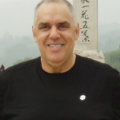'One country, two systems' policy in HK
(China Daily) Updated: 2014-06-11 08:10The timetable has been set for universal suffrage. The 31st Session of the Standing Committee of the Tenth NPC made a decision on December 29, 2007 "that the election of the fifth chief executive of the HKSAR in 2017 may be implemented by the method of universal suffrage; that after the chief executive is selected by universal suffrage, the election of the Legislative Council of the HKSAR may be implemented by the method of electing all the members by universal suffrage," thus setting a timetable for the selection of the chief executive and all members of the Legislative Council by universal suffrage. From December 4, 2013 to May 3, 2014, the HKSAR government initiated a five-month public consultation on the election of the chief executive in 2017 and that of the Legislative Council in 2016, starting the relevant procedures for introducing universal suffrage.
The HKSAR has maintained steady economic growth. From 1997 to 2013, Hong Kong's Gross Regional Product (GRP) grew by 3.4 percent annually in real terms, and its per-capita GRP increased by a total of 39.3 percent calculated in US dollar. According to the 2013 statistics of the International Monetary Fund (IMF), Hong Kong's GRP and per-capita GRP, respectively, ranked the 35th and 7th in the world, as calculated by purchasing power parity.
Hong Kong has maintained and enhanced its status as an international financial, trade and shipping center. As an important international banking center, Hong Kong boasts the world's sixth-largest securities market and fifth-largest foreign exchange market. Hong Kong ranks high in various lists of international financial centers. As the world's ninth-largest trading economy, Hong Kong has regular trading ties with almost every country and region in the world. Hong Kong is one of the world's largest container shipping ports and fourth-largest ship-registration center. The Hong Kong International Airport is one of the world's busiest. Its air freight volume has led the world for many years, and its passenger transport volume ranks fifth.
Hong Kong's robust industries have been strengthened even further. Trade and logistics, tourism, finance, and professional services and support services for industry and commerce continue to play an important role as Hong Kong's four pillar industries. In 2012, these four sectors employed 47.2 percent of Hong Kong's total working population, and their added value accounted for 58 percent of Hong Kong's total GRP. Hong Kong also focuses on the cultivation and development of the cultural and creative, innovation and technology, testing and certification, and environmental protection industries.
Hong Kong has maintained a sound business environment, and is generally recognized as one of the world's freest economies. For many years, it has ranked high in the World Bank's evaluation of business environments of 185 economies. In its World Investment Report 2013, the United Nations Conference on Trade and Development (UNCTAD) ranked Hong Kong the third in the world in attracting foreign direct investment (FDI). For many years, Hong Kong has been listed among the world's most competitive economies by the World Competitiveness Yearbook compiled by the International Institute for Management Development based in Lausanne, Switzerland.
Social programs have been further enhanced. Hong Kong leads the Asia-Pacific region in education, as the HKSAR government continues to increase its investment in education, the biggest government expenditure item. During the 2014-2015 fiscal year, the HKSAR government's current budgetary spending on education reached HK$75.37 billion. Since the 2008-2009 school year, Hong Kong has implemented 12-year free education in public schools. The University of Hong Kong and the Hong Kong University of Science and Technology are among Asia's top-ten universities, according to the Times Higher Education Asian University Rankings 2013. The University of Hong Kong was the 43rd according to the World University Rankings 2013-2014. Hong Kong continues to rank high in the global test of the Program for International Student Assessment (PISA) 2012, which reflects the quality of primary education.











